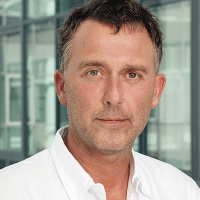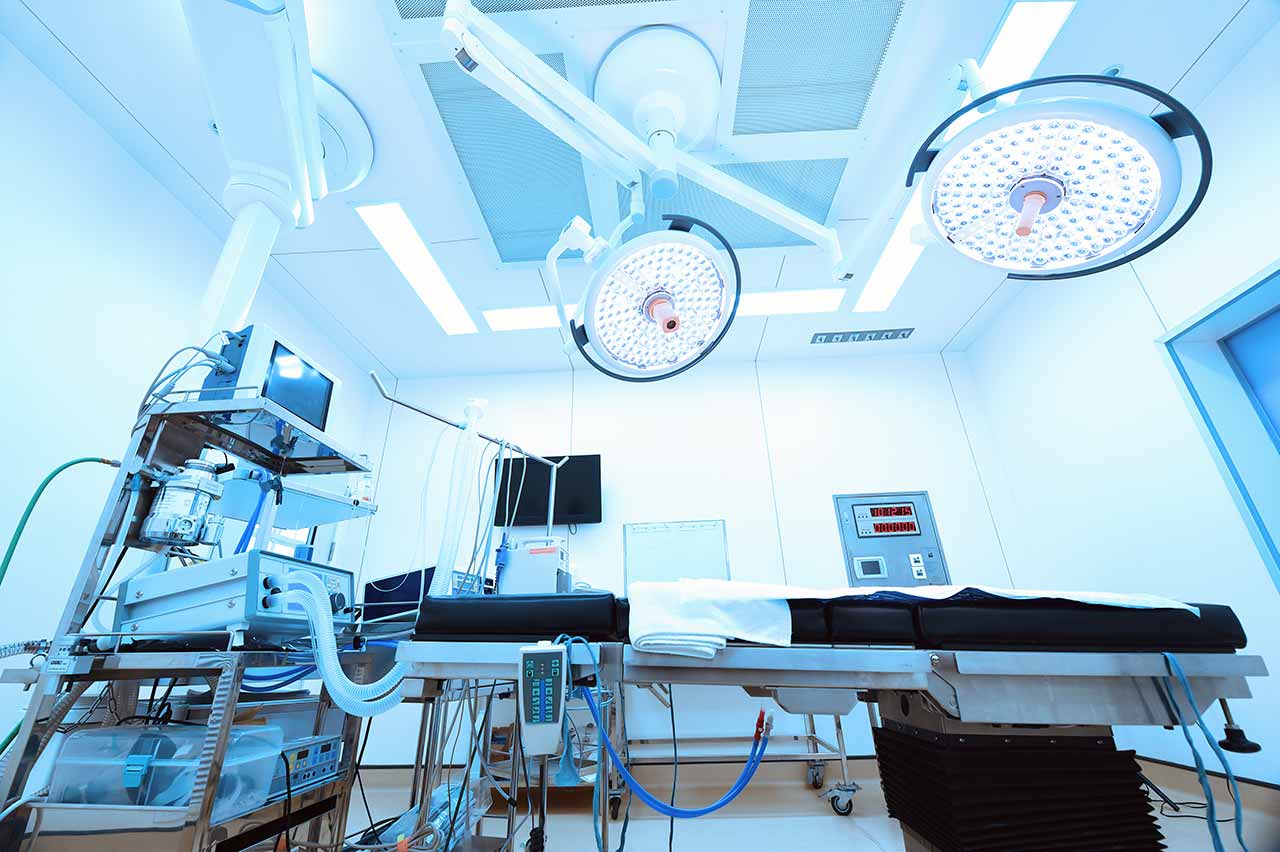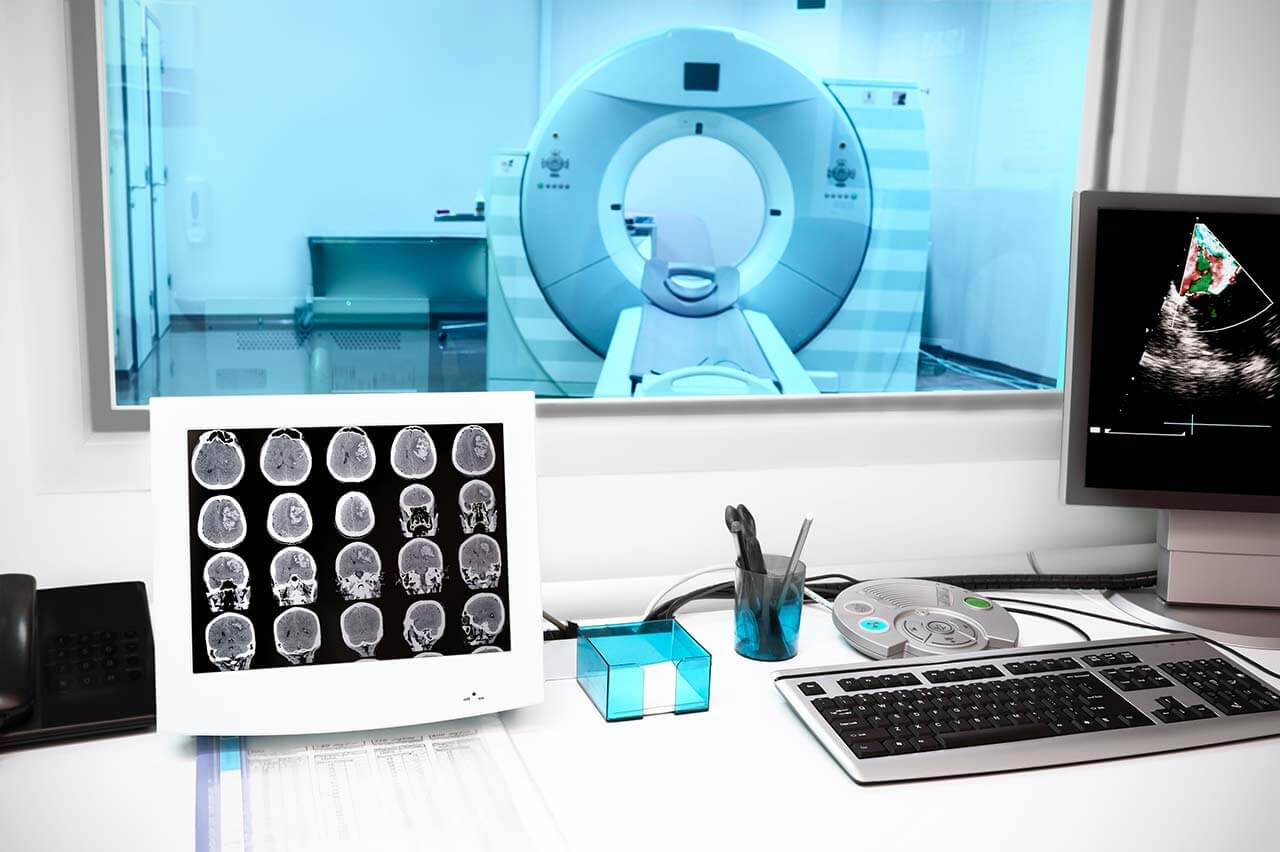
The program includes:
- Initial presentation in the clinic
- clinical history taking
- physical examination
- review of medical records
- laboratory tests:
- complete blood count
- general urine analysis
- biochemical analysis of blood
- indicators of inflammation (CRP, ESR)
- indicators of blood coagulation
- X-ray examination of the knee
- CT scan of the knee
- preoperative care
- endoprosthesis replacement
- symptomatic treatment
- control examinations
- physiotherapeutic procedures
- orthopedic appliances
- the cost of essential medicines and materials
- nursing services
- full hospital accommodation
- explanation of future recommendations
The program includes orthopedic rehabilitation:
- Primary presentation in the clinic
- medical history, including family history
- complex neurological and orthopedic examinations
- X-ray examination
- complex neurophysiological examinations
- individual rehabilitation program, which includes:
- Wii Fit training in the use of the balance
- neuropsychological therapy
- functional therapy of the upper extremities (ArmeoSpring)
- kinesitherapy (physiotherapy)
- biocontrol with feedback
- healing deep muscle massage
- acupuncture of spasticity and pain syndromes
- occupational therapy
- psycho-educational classes
- individual physiotherapy
- microcurrent treatment
- fangotherapy / cryotherapy
- antispasmodic drug therapy
- mobilization of limb joints
- hydrotherapy / massage therapy / reflexology
- training on special trainers
- etc.
- nurses care
- stay in the hospital with full board
- symptomatic and drug therapy
How program is carried out
Preliminary preparation for surgery: quitting smoking and drinking alcohol 2 weeks before surgery; cancelling non-steroidal anti-inflammatory drugs (diclofenac, ibuprofen); cancelling anticoagulants (warfarin); normalization of body mass, if possible.
Preoperative examination, including consultation with an anesthesiologist and necessary related specialists. X-ray examination and MRI of the knee joints are performed. The examination takes 1-2 days.
Surgical knee endoprosthesis replacement. The operation is performed under general anesthesia and lasts for about 2 hours.
Postoperative care. During the first day after the intervention the patient stays in the intensive care unit, under round-the-clock medical supervision. After that, with a smooth course of the postoperative period, the patient is transferred to a regular ward and the drains are removed. The range of motion expands gradually, from light toes movements to walking. Walking with the use of walking aids is allowed in 3-5 days after the operation. Normal walking without the use of walking aids (crutches, cane) will become possible in 6-12 weeks.
Finally, the attending physician will evaluate the results of control examinations, schedule the date of discharge from the hospital and give you detailed recommendations for further follow-up and treatment.
Rehabilitation. The rehabilitation program begins after the transfer of the patient from the intensive care unit to a regular ward. It includes physical activity (from exercises in bed in the early days to exercises in the gym), physiotherapy, massage (including lymphatic drainage). After discharge from the hospital, the patient is transferred to a specialized rehabilitation clinic for 2 weeks, where he undergoes an advanced rehabilitation course.
Required documents
- Medical records
- X-ray examination, MRI/CT scan (if available)
Service
You may also book:
 BookingHealth Price from:
BookingHealth Price from:
About the department
The Department of Orthopedics, Traumatology, Spinal Surgery and Foot Surgery at the Hospital zum Heiligen Geist Frankfurt am Main offers the full range of modern diagnostic tests and therapeutic methods, including surgical ones, for the treatment of musculoskeletal diseases and injuries. The key interest for the department's team of doctors is knee, hip and shoulder replacement surgery, arthroscopic joint interventions, conservative and surgical treatment of spinal diseases, medical care for foot diseases and deformities, as well as the treatment of musculoskeletal injuries, including complex injuries in elderly patients. The department has been awarded the EndoCert quality certificate and is a major Endoprosthetics Center, which performs both standard and complex joint replacement surgeries. The experienced team of the department's doctors and junior medical staff sets itself the task of providing patients with effective and as safe treatment as possible. At the same time, it is important for the specialists that the patient receive individualized medical care of the European level. The department is headed by Dr. med. Thomas Forer.
The department has a certified Endoprosthesis Center, which has performed over 10,000 joint replacement surgeries since 1965. The department is one of the pioneers in the field of artificial hip joint implantation. It also performs knee and shoulder joint replacement surgery. Thanks to long experience and wide technical capabilities, the department's specialists achieve excellent therapeutic results. The quality of medical services provided by the Endoprosthetics Center is regularly inspected by independent authorities. The center is a member of the German Arthroplasty Registry (EPRD), which ensures exceptional treatment safety. Thanks to the registry, the department's specialists are able to accurately determine the cause of the previous joint replacement surgery, as well as obtain information about the surgical technique used and the characteristics of the prosthesis. Such an approach allows them to timely perform revision interventions to replace worn prostheses and, if necessary, prescribe conservative treatment to reduce the risk of complications. In their work, the department's specialists use only advanced implants from leading manufacturers that have passed quality certification and have confirmed their durability and reliability.
The department also specializes in the prevention, diagnostics and treatment of congenital and acquired functional disorders of the musculoskeletal system. The patients with pathologies of bone structures, joints, muscles and tendons are most often admitted to the department. The orthopedists of the medical facility have rich experience and are rightly proud of their outstanding results in the field of arthroscopic knee and shoulder surgery, surgical treatment of degenerative diseases of large joints and spine, as well as surgical repair of forefoot deformities. The department also provides effective conservative treatment of musculoskeletal pathologies using infiltrations, injections, manual therapy and other techniques.
In the field of traumatology, the department often admits patients who require emergency medical care for injuries. If necessary, the long-term consequences of traumatic musculoskeletal injuries can also be treated. The patients are admitted both on an inpatient and outpatient basis.
A special focus of the department's specialists is on the surgical treatment of spinal pathologies. The medical facility regularly admits patients with spinal stenosis and osteoporotic compression fractures. In case of spinal stenosis, conservative and surgical treatment or combined treatment can be conducted. Conservative treatment includes physiotherapy and therapeutic exercises. Surgery for spinal stenosis is performed using minimally invasive techniques, which guarantees the patient a quick recovery after the intervention and minimal pain. Conservative and surgical techniques are also used to treat osteoporotic compression fractures. In the first case, the department's doctors administer injections with painkillers to the patient, and if there are indications for surgery, they resort to balloon kyphoplasty. In addition, the department's orthopedists specialize in facet joint blocks for the treatment of back pain.
The department performs various arthroscopic interventions on the joints. Arthroscopy involves the introduction of miniature surgical instruments and a video camera through small punctures, which makes it possible to transmit an image of the surgical field on a large screen. Arthroscopic procedures carry a lower risk of postoperative complications, severe pain, and infections. Particular attention of the department's specialists is focused on the diagnostics and treatment of pathologies of the knee and shoulder joints, namely, meniscus tears, cruciate ligament injuries, shoulder instability, rotator cuff tears, impingement syndrome, tendinitis, etc.
The competence of the department's medical team also includes the treatment of foot diseases and deformities. Of particular interest is the repair of hallux valgus and hallux rigidus. At the early stages of pathologies, the doctors resort to conservative therapeutic measures: wearing special orthopedic insoles and comfortable shoes, physiotherapy, massage, shock wave therapy. If these techniques do not give a satisfactory result, the patient undergoes a low-traumatic corrective surgery.
The department's clinical focuses include:
- Orthopedics
- Knee, hip and shoulder joint replacement surgery
- Arthroscopic interventions on the knee and shoulder joints
- Traumatology
- Conservative and surgical treatment of musculoskeletal injuries of any severity, including in elderly patients
- Surgical treatment of spinal pathologies
- Conservative and surgical treatment of spinal stenosis
- Conservative and surgical treatment of osteoporotic compression fractures
- Facet joint block for back pain
- Foot surgery
- Conservative and surgical treatment of Hallux valgus
- Conservative and surgical treatment of Hallux rigidus
- Other medical services
Curriculum vitae
University Education and Professional Career
- Since 2017 Head Physician, Department of Orthopedics, Traumatology, Spinal Surgery and Foot Surgery at the Hospital zum Heiligen Geist Frankfurt am Main.
- 2010 - 2016 Managing Senior Physician, Department of Orthopedics, Traumatology, Spinal Surgery and Foot Surgery at the Hospital zum Heiligen Geist Frankfurt am Main.
- 2003 - 2010 Senior Physician, Department of Orthopedics, Traumatology and Hand Surgery at the Hospital Darmstadt.
- 1994 - 2003 Assistant Physician, advanced training in the Department of Surgery at the Hospital Nordwest.
- 1992 - 1994 Assistant Physician, Department of Neurosurgery at the University Hospital Frankfurt am Main.
- 1986 - 1992 Study of Human Medicine at the Johann Wolfgang Goethe University.
Clinical Interests
- Hip and knee replacement surgery.
- Spinal surgery.
- Hand surgery.
Memberships in Professional Societies
- Working Group on Endoprosthetics (AE) of the German Society for Orthopedics and Trauma Surgery (DGOU).
Photo of the doctor: (c) Hospital zum Heiligen Geist
About hospital
The Hospital zum Heiligen Geist Frankfurt am Main is a modern medical facility offering top-class service. The medical complex is an academic hospital of the Goethe University Frankfurt, so doctors pay due attention to research activities, and also have a perfect command of the very latest diagnostic and therapeutic techniques. The hospital has state-of-the-art equipment, comfortable diagnostic and treatment rooms, as well as cutting-edge operating rooms. The medical facility provides treatment to more than 10,844 inpatients and about 14,582 outpatients every year. In addition, more than 1,157 babies are born in the hospital annually. The medical complex is highly reputable in the region and throughout the country.
The hospital has specialized departments responsible for the treatment of diseases of the gastrointestinal tract and liver, respiratory diseases, diseases of the cardiovascular system, musculoskeletal system and pathologies of the female reproductive organs. The health of patients is in the safe hands of highly professional doctors who have a perfect command of all modern treatment methods in their field of competence. The specialists pay special attention to an individual approach to each clinical case, which allows them to achieve excellent therapeutic results.
Medical care at the hospital is awarded by prestigious quality certificates, including the EndoCert certificate of the German Society for Orthopedics and Orthopedic Surgery (DGOOC), the certificate of the German Hernia Society (DHG), the certificate of the German Cardiac Society (DGK). In addition, the hospital has DIN EN ISO 9001:2015 quality management system, which ensures the control of the work of medical staff, the quality of services provided and assess satisfaction of patients upon the completion of treatment. The hospital also regularly undergoes an assessment of the quality of medical services by specialized state authorities, which publish the results of inspections in the public domain.
The doctors working in the hospital always strive to carry out accurate diagnostics and effective treatment using modern sparing techniques. At the same time, the patient and the humane attitude towards him and his needs are in the focus of attention. The hospital offers a pleasant and friendly atmosphere, in which the patient feels as comfortable as possible and can fully concentrate on restoring his health.
Photo: (с) depositphotos
Accommodation in hospital
Patients rooms
The patients of the Hospital zum Heiligen Geist Frankfurt am Main live in modern and cozy rooms with pastel colors. The standard room furnishings include an automatically adjustable bed, bedside table, wardrobe, table and chairs, telephone and TV. The bed is equipped with a nurse call system. Each patient room has an ensuite bathroom with shower and toilet. The hospital has rooms in which the bathroom is specially equipped for disabled people. The hospital has Wi-Fi access.
If desired, the patient can stay in the enhanced comfort room. Such rooms are additionally equipped with a safe for storing valuables, a mini-fridge and upholstered furniture.
Meals and Menus
The patients of the hospital are offered tasty and healthy three meals a day: breakfast, lunch and dinner. The menu includes standard and dietary dishes, vegetarian dishes and pork-free dishes for Muslims. Coolers with drinking water are available in the corridors and patient rooms.
If for some reason you do not eat all the foods, you will be offered an individual menu. Please inform the medical staff about your food preferences prior to treatment.
Further details
Standard rooms include:
Religion
Religious services are available upon request.
Accompanying person
Your accompanying person may stay with you in your patient room or at the hotel of your choice during the inpatient program.
Hotel
You may stay at the hotel of your choice during the outpatient program. Our managers will support you for selecting the best option.




